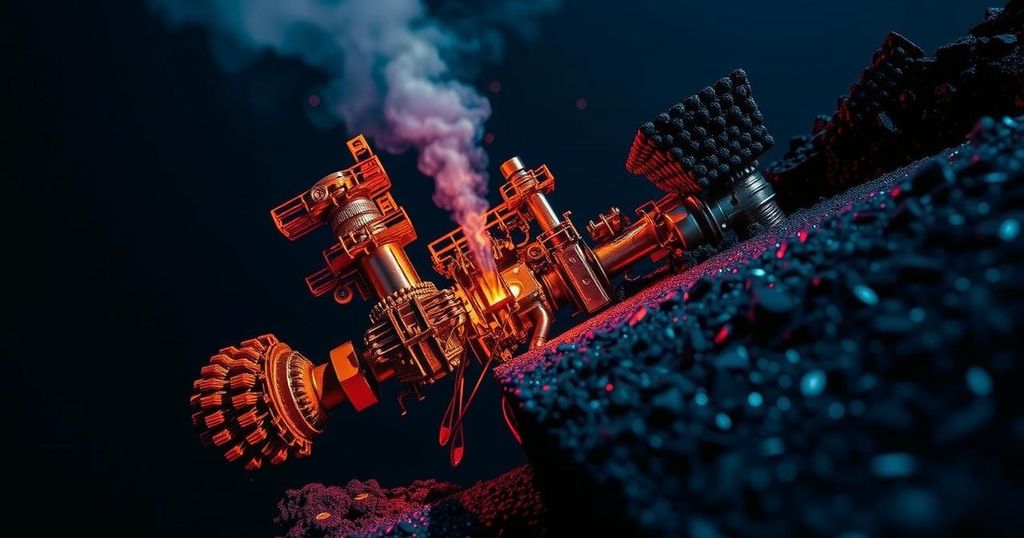Climate change
AFRICA, ASIA, BELGIUM, BRUEGEL, BRUSSELS, CECILIA TRASI, CHINA, CLIMATE CHANGE, CONGO, CONGO (KINSHASA), CORRUPTION, DEMOCRATIC REPUBLIC OF CONGO, DRC, DW, EUROPE, EUROPEAN COMMISSION, EUROPEAN UNION, FRANCE, GEOPOLITICS, GERMANY, KOLWEZI, MARIE -, MARIE - PIERRE VEDRENNE, ME, MEXICO, NBANZE, NORTH AMERICA, PAUL ZAGABE NBANZE, PIERRE VEDRENNE, RENEW EUROPE, REPUBLIC OF THE CONGO, THE, VE, VEDRENNE
Marcus Li
0 Comments
Congo’s Cobalt Boom: An Unexpected Challenge for Europe
The Democratic Republic of the Congo holds over two-thirds of the world’s cobalt supply, critical for the European green energy transition. As European countries seek sustainable sourcing, they must navigate complex dependencies, particularly with China’s dominating role in cobalt processing. Congolese leaders advocate for respectful partnerships that consider local interests amid a backdrop of historical exploitation.
The discussions surrounding the Democratic Republic of the Congo’s (DRC) burgeoning cobalt industry highlight a complex web of dependencies and historical injustices. In Europe, policymakers like Marie-Pierre Vedrenne advocate for unified action among member states to secure ethical sourcing of cobalt, vital for the continent’s transition to green energy. However, the DRC is emerging as a critical player, contributing two-thirds of the world’s cobalt production, raising questions about the continent’s response to this demand. While Europe relies heavily on Congolese cobalt, 75% of the refining processes occur in China, highlighting a geopolitical challenge that complicates the relationships between these regions. Congolese leaders, like former minister Simon Tuma Waku, urge for respectful partnerships that acknowledge local interests, diversifying the narrative beyond historical exploitation. Initiatives such as the Lobito Corridor seek to bolster infrastructure and improve market access for DRC’s resources, yet China remains the dominant trade partner. Despite European efforts to invest and influence positively, genuine changes in the DRC’s mining landscape remain slow to materialize, reflecting ongoing tensions between past and present.
The Democratic Republic of the Congo has long been marred by a legacy of colonial exploitation and inefficient governance, leading to widespread poverty and underdevelopment. However, it holds immense reserves of cobalt, a critical component in lithium-ion batteries, which has led to a surge in its demand globally, especially in Europe, which is looking to transition to renewable energy sources. The unbalanced global trade dynamics, particularly with regards to China’s dominating role in the cobalt processing industry, have raised concerns about the sustainability and ethics of sourcing practices in the DRC, making it increasingly relevant for European policymakers.
In summary, the cobalt boom in the DRC presents both opportunities and challenges for Europe. While the demand for cobalt is critical for the EU’s green transition, the dependency on Chinese processing complicates this equation. European leaders must navigate the intricacies of ethical sourcing, respect Congolese sovereignty, and foster genuine partnerships that prioritize sustainability and local empowerment. Failure to address these issues could hinder Europe’s ability to secure a reliable and ethical supply chain for vital raw materials.
Original Source: www.dw.com




Post Comment